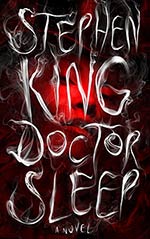
![]() verkisto
verkisto
7/26/2016
![]()
Sequels that aren't written as part of an ongoing series make me apprehensive. Sequels that aren't written as part of an ongoing series that are also sequels to books written 37 years ago make me really apprehensive. It doesn't help that King has done this before, though I suppose I should credit King for making Black House less a sequel to The Talisman and more a "Whatever happened to Jack Sawyer?" novel. It doesn't change the fact that the book was disappointing, though.
A lot of what bothered me about Black House was the fact that it didn't really need to feature Jack Sawyer at all. King took the novel as another opportunity to tie his universe into that of the Dark Tower, and while it made sense (the idea of "Lighting out for the Territories" jives with the dual-worlds that inhabit the Dark Tower series), it felt like it was just an opportunity to cash in on the fond memories people had of the original book. Given the changes, not just in the book, but in the authors themselves, it seemed like the book could have featured a new character and have had very few changes made to make it a non-sequel.
I mention all this because King took the same approach with Doctor Sleep, the so-called sequel to The Shining. The story isn't so much what happened after Wendy and Danny escaped Jack and the Overlook as it is about who Danny is as an adult. King starts the story off in a wonderful fashion, looking at the time that elapsed between the end of The Shining and the start of the proper story in Doctor Sleep, going into full detail how Danny tumbled into the life of an alcoholic. It was well done and convincing, and my only gripe is that I wish he had spent more time covering those years. I know that sounds crazy, but after reading 11/22/63, I found that I liked those lengthy backstories that King created for his characters.
Today, King is well known for using psychic children as his relevant plot points, and that happens here in Doctor Sleep, as well, but at least here we're revisiting early King characters, and not seeing that ability tacked on to move the story along when he needs a convenient way to have a character possess information he doesn't know (a la Under the Dome, Joyland, Cell, etc.). And while this story is as much about Abra as it is about Danny, it doesn't feel tacked on to Abra, since we're already in a world where this sort of thing exists.
Like any King novel, it's compellingly readable, with likeable, sympathetic characters, but also like most of King's works, it tends to show its fringe when the story comes around to its conclusion. It wrapped up quickly (more quickly than I would have expected for a King novel, at least) and easily, without the typical back-and-forth that usually comes from dealing with an antagonist, and it relied too much on a convenience than having the protagonists solve the problems themselves. It did bring the story full circle, but I didn't find it to be as convincing as I would have liked.
So, Doctor Sleep is a solid read, right on par with what you would expect from Stephen King (e.g., if you like everything else he reads, you should find a lot to like here, too), but it's not going to be another Bag of Bones or 11/22/63.